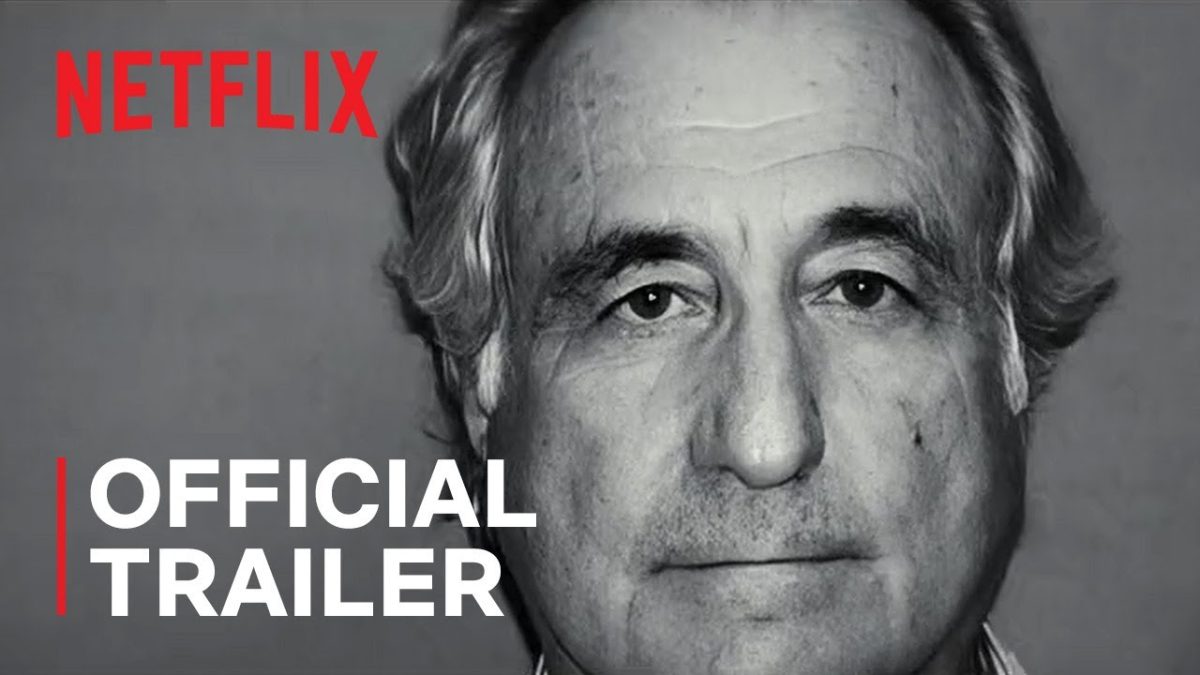
By ROBIN POWELL
The only thing necessary for evil to triumph in the world is that good men do nothing.
— Edmund Burke
Goodness me, Madoff: The Monster of Wall Street is a hard watch.
Most of us by now will know the basic facts. How Bernie Madoff, the son of a failed businessman from Queens, rose from being a penny-stock trader to a Wall Street big shot who appeared to have the Midas touch. Except he didn’t. He was a liar who perpetrated the world’s biggest financial fraud.
But credit goes to Netflix and to Joe Berlinger, director of this riveting four-part documentary series, for depicting the full horror of it, and the acute pain and suffering that Madoff inflicted. He conned investors out of an estimated $18 billion. He caused bankruptcies, lost homes and suicides; his own son was found hanged on the second anniversary of the scandal breaking.
Madoff himself died in prison in April 2021, but his ashes are still in a box on a shelf at a law firm’s office, because no one has been willing to claim his remains and bury them.
A preventable tragedy
There are many new things I learned from this series, but the most important message for me is that this was a highly preventable tragedy. Time and again, those who were supposed to protect investors failed to act on the warning signs that something was wrong.
“Over time the aura of this story,” says Berlinger, “and how most people think about the story, is one evil genius who was so charming and manipulative he did all this terrible stuff.
“The reality, which is under-reported and a cautionary tale for everybody who has any kind of financial assets in the market, is he got away with it because of a whole cadre of literal co-conspirators or people who should have known better.”
The US financial regulator, the Securities and Exchange Commission, rightly bears the brunt of the criticism. Analyst Harry Markopolos worked out as early as 1999 that Madoff’s wealth management business was a Ponzi scheme and repeatedly alerted the SEC. But the regulator did next to nothing about it. Markopolos told a Congressional hearing into the scandal years later, it “roars like a mouse, fights like a flea”.
The impression viewers are left with is of regulatory capture. Madoff was a star and a highly respected Wall Street statesman. A one-time chairman of the NASDAQ stock exchange, Madoff served on an SEC advisory committee; he was even tipped as a future chairman of the regulator.
Other guilty parties
But the SEC wasn’t the only organisation that Madoff charmed. In 2014, JP Morgan, which served as Madoff’s bank for more than 20 years, agreed to pay $2 billion to settle charges that it knowingly ignored evidence that Madoff’s investment performance was too good to be true.
“The (Netflix) series,” writes Dan Einav in the FT, “is at its most compelling when it places Madoff’s monstrousness within the context of the systemic self-interest and greed that allowed him to flourish.
“Despite concerns raised from some corners of the industry, Madoff continued to profit from the seemingly wilful myopia of the banks and hedge funds he traded with.”
Chitra Ramaswamy, writing in The Guardian, shares the view that Madoff, appalling though he undoubtedly was, wasn’t the only guilty party. “Perhaps the grubbiest detail of all,” she writes, “is the fact that it was the financial crash of 2008 that finally put a stop to (him).
“All the institutions did was enable him. If the crash hadn’t happened, Madoff might still be operating today. Who knows how many others have since risen to take his place? What an indictment.”
Culture of deceit
Of course, Madoff was exceptional. He was one of the biggest liars in financial history. His crime was off the scale. But perhaps we shouldn’t be quite as shocked by Madoff as we are. We have, after, allowed a culture of deceit to fester in the global asset management industry over several decades now; and we won’t begin go address it without tackling it head on.
Outright scams and frauds by major players are mercifully rare. But we’ve come to accept that it’s somehow all right for firms that manage our money to be economical with the truth.
OK, they may not lie about their past performance but they’ll use every trick in the book to make it look better than it really is. Most firms, you would like to think, are not deliberately dishonest either about the different fees and charges you’re paying to invest; but they’re happy nevertheless to keep them so opaque that they’re extremely hard to compute.
Let’s be clear: there are many good people in this industry, as well as in governments and the regulators, who do want to see investors treated fairly. But they have to stand up and be counted. They have to start demanding higher standards of integrity and zero tolerance of dishonesty. Otherwise it’s only a matter of time until thousands of lives are ruined by another Bernie Madoff.
Madoff: The Monster of Wall Street is on Netflix. Here’s the official trailer:
PREVIOUSLY ON TEBI
Charley Ellis: six nuggets of investment wisdom
S&P and MSCI US indices: why the difference in performance?
11 things the SVB crisis tells us about investor behaviour
© The Evidence-Based Investor MMXXIII









